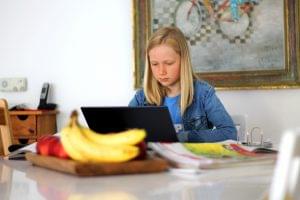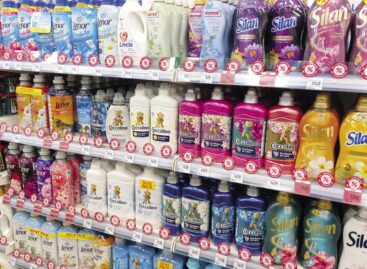The P&G ECO Habits was launched with the participation of thousands of children environmental education program
The aim of environmental education is to promote environmentally conscious behaviour, responsible living for the environment, and to preserve and maintain the harmony of nature, including human society. Education and social education for an environmentally conscious lifestyle and responsible consumption is one of Procter&Gamble’s main efforts worldwide, which is why it introduced its ECO-habits educational program for elementary school students in Hungary as well. The free downloadable curriculum has reached eight thousand students in the past year.

(Photo: Pixabay)
Environmental education is one of the most dynamically developing areas of pedagogy. Today’s children can learn about sustainability, responsible consumption, green thinking and environmentally conscious values from a very young age, yet for many even the most basic actions, such as selective waste collection, are unfamiliar concepts. The aim of environmental education is therefore to greatly improve awareness and the social environment by prioritizing the knowledge, skills and behavior necessary to protect natural and environmental values. In order to implement its principles and objectives, methods must be used that enable students to become environmentally conscious, active citizens in their adulthood, and that their decisions in any area of life are in line with sustainable development and consumption. As a global corporation, P&G is aware of its responsibility to protect the planet and is committed to supporting environmental protection and encouraging environmental education and training. Introduced last year, comprehensive educational aids that can be downloaded from the company’s website help teachers and students learn basic ecological habits. The materials focus on three key areas of environmental protection: water conservation, waste management and energy conservation. According to the latest data from P&G, the educational aid reached nearly 8,000 students in the past year, but the company does not stop there. Their goal is to reach all 720,000 students in the country’s more than 2,400 elementary schools, so in the future they will launch a comprehensive information program to make their interactive educational aid available to as many educational institutions and teachers as possible. – During the production of our products, we learned a lot about how to save water, energy and other natural resources. We want to share this knowledge in the form of educational materials, which we have prepared primarily for primary school teachers. We are happy if you download it and use it in your classes (chemistry, physics, biology, geography, mathematics) to encourage students to consume responsibly to protect the planet. Yvette Krubl, the company’s head of communications, said.
Each chapter provides comprehensive knowledge, consisting of an introductory tutorial and worksheets that also contain tips for interesting experiments
Students play ECO detectives and, for example, test how quickly waste decomposes, calculate how much energy and money their household can save when doing laundry by using energy-saving cycles, or learn the path that water takes before it comes out of the tap, what awaits him after leaving the sink or sink. The videos of the materials are for elementary school students, and the worksheets are for grades 7-8. They are designed for students in the first grade and help them acquire and verify their knowledge in the fields of natural sciences, chemistry, geography, physics or mathematics.
Residential energy consumption has increased
Environmentally conscious behavior at home has recently come to the fore even more, since on the one hand, in the last two years of the pandemic, families spent much more time at home, increasing energy and water consumption, and on the other hand, due to rising energy prices, households manage their consumption more and more carefully and cautiously. The increasing energy consumption of households is also clearly demonstrated by domestic and European data. The gas and electricity consumption of Hungarian households was almost 5 percent higher in 2020 than a year earlier, and based on the data of the Hungarian Energy and Utilities Regulatory Office (MEKH), residential consumers used 12% more natural gas than in 2020. used in 2021. Last year, the annual domestic electricity consumption reached a five-year high, rising by 4.9% compared to 2020, and was also higher than the consumption of the last five years.
According to Eurostat’s data published in June this year, 27% of the final energy consumption of the European Union came from households. Most of the consumption was covered by natural gas (31.7%) and electricity (24.8%). Households mainly use energy for heating their homes (62.8%), electricity used for lighting and electrical appliances accounts for 14.5%, water heating accounts for 15.1%, and main cooking appliances account for 6% of household energy consumption. .1%. Space heating and water heating together account for 77.9% of the final energy consumption of households. In Hungary, residential energy consumption is 32%, which exceeds the European average, and in terms of energy sources, domestic residential needs mostly relied on natural gas (50.7%). Of course, environmentally conscious behavior does not only mean reducing energy consumption, but every small step and action that a household takes at home, whether it is washing at a colder temperature, using energy-saving light bulbs, reducing and selectively collecting plastic packaging, all contribute to creating a more sustainable environment.
Related news
An experience beyond scent
🎧 Hallgasd a cikket: Lejátszás Szünet Folytatás Leállítás Nyelv: Auto…
Read more >dm welcomes customers with stable prices and a superb price-value ratio
🎧 Hallgasd a cikket: Lejátszás Szünet Folytatás Leállítás Nyelv: Auto…
Read more >








